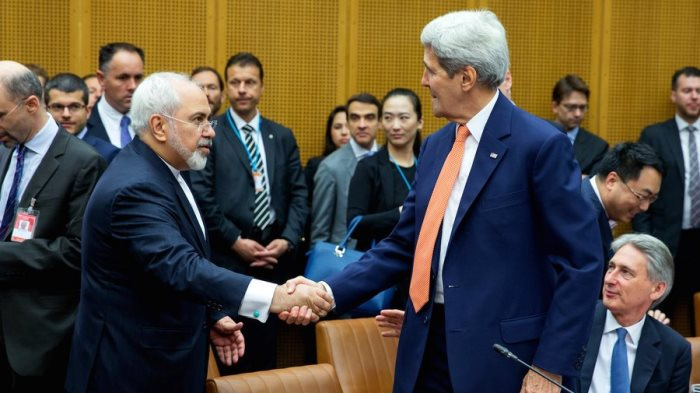Three Criticisms of the Vienna Deal

By: Jalil Bayat
The domain of foreign policy and international relations of each country is heavily predicated on its power. Therefore, what Iran has gained and lost in the Vienna Deal is concomitant with its power and position in the international system.
In a brief note, one can criticize the deal from three aspects:
1. Commitment non-noncurrence: After the deal, Zarif rightly noted that the possibility to build a mechanism to make these commitments concurrent would be difficult, since the nature of commitments of each party is different. Although the current mechanism has partially provided commitment concurrence, it is not complete. For instance, Iran will implement Article 66, from Section M of Annex 1 which relates to past and present issues of concern on the day the deal is ratified. However, the other party will only adopt certain regulations, meaning that all sanctions will still remain until the Implementation Day. (Annex V, articles 10, 9, 11)
2. Lifting of sanctions after eight years: Zarif, Araghchi, and other Iranian team members have pointed out that all economic and financial sanctions will be terminated [‘laghv’, literally ‘cancel’ in Persian] on the Implementation Day. Even President Rouhani mentioned that Iran would not sign any contract unless it terminated all sanctions. However, the deal terms will not terminate all sanctions on the Implementation Day. According to Annex V, which is on European and American commitments on the Implementation Day and Transition Day, sanctions will not be terminated until the Transition Day (after 8 years); instead, they will merely be ‘suspended’.
3. Termination of previous UNSC resolutions after 10 years: Although Zarif and other members of the Iranian team have already put emphasis on the lifting of previous UNSC resolutions following the Iran Deal in Vienna and issuing a new UNSC resolution, the reality is different. In fact, all prior resolutions have been merely suspended. According to Annex V of the Iran Deal, the termination of UNSC resolutions on Iran's nuclear program would take place after 10 years under condition of the non-implementation of the terms of previous UNSC resolutions. Obviously, a resolution that has been terminated cannot be restored. On the other hand, a suspended resolution could return. Thus, there is the possibility for restoration of all prior resolutions.
Nonetheless, snapback of Security Council sanctions is not an easy task. Violating the agreement with no significant non-compliance of the deal by Iran would be very costly, and would result in the international community’s negligence and discrediting of the resolution, which would ultimately leave the implementation useless.
Iran’s Foreign Minister has pointed out that in case of the reimposition of the Security Council sanctions, whether partially or completely, the Islamic Republic of Iran would not oblige itself to implement any of its voluntary commitments, and would reconsider its cooperation with the International Atomic Energy Agency.
As it is clear, Zarif is also aware of the possibility of the resolutions’ restoration. Thus, it would be erroneous to speak of ‘laghv’, or cancellation/termination of sanctions, even if it is very difficult to return the sanctions. At the moment, Iran’s main concern should be correct implementation and continuation of the agreement and ways to avert any efforts by other parties to disrupt the agreement.
Translated by: Parisa Farhadi

